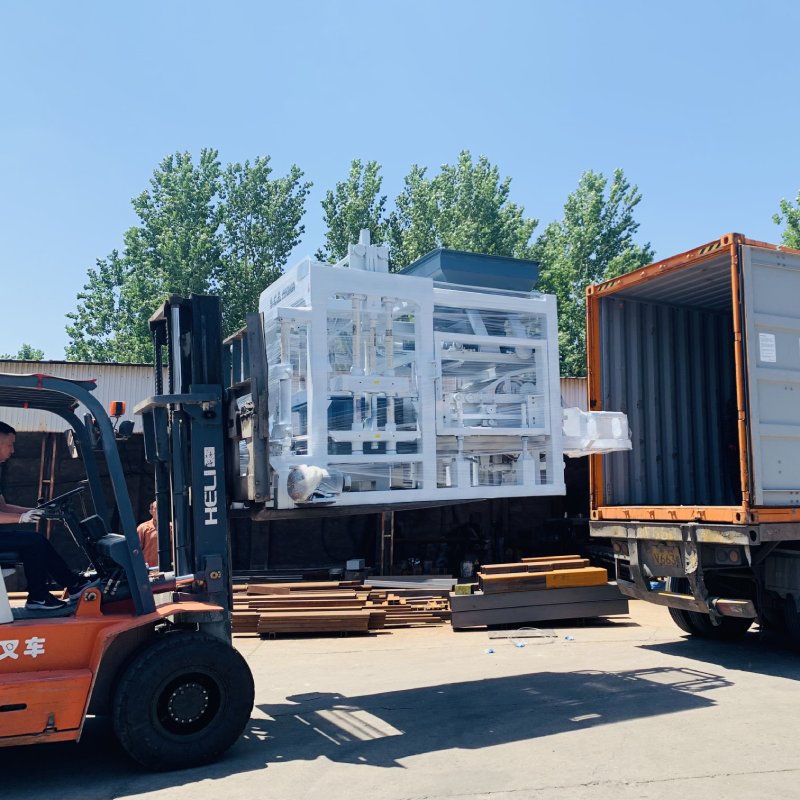
Image source Aiwei Block Machine
Machine Selection Criteria: A Comprehensive Guide
Introduction.
In today’s rapidly evolving technological landscape, the selection of the right machine is critical for businesses to remain competitive and efficient. With numerous options available, ranging from simple tools to complex industrial machines, it becomes essential to establish a set of criteria to guide the selection process. This article aims to provide a comprehensive guide to machine selection criteria, enabling businesses to make informed decisions and maximize their investment.
Purpose and Requirements Analysis:
Before delving into machine selection, it is crucial to have a clear understanding of the purpose and specific requirements of the machine. This involves analyzing the intended use, production capacity, required features, and any regulatory or safety considerations. By defining these factors, businesses can establish a baseline for evaluating potential machines.
Reliability and Durability
Reliability and durability are fundamental criteria in selecting a machine. Assessing the reliability of a machine entails examining its track record, reputation, and warranty or service agreements. Additionally, evaluating the durability involves considering the quality of materials, construction, and overall robustness of the machine. Opting for a reliable and durable machine helps minimize downtime and repair costs, ensuring uninterrupted operations.
Performance and Efficiency
The performance and efficiency of a machine directly impact productivity and cost-effectiveness. Evaluating performance involves assessing factors such as speed, accuracy, precision, and output quality. Efficiency, on the other hand, relates to energy consumption, waste generation, and resource optimization. It is essential to select a machine that balances high performance with optimal efficiency to achieve optimal results.
Flexibility and Versatility
In today’s dynamic business environment, adaptability is key. Machines that offer flexibility and versatility allow businesses to respond to changing demands and diversify their product offerings. Look for machines that can be easily reconfigured, upgraded, or integrated with other equipment to accommodate future needs. This criterion ensures long-term viability and scalability of operations.
Cost Considerations
While upfront cost is a significant factor in machine selection, it is essential to consider the total cost of ownership (TCO) over the machine’s lifespan. TCO includes maintenance, repair, operating costs, and potential downtime. A comprehensive cost analysis should also incorporate factors such as training requirements, spare parts availability, and the machine’s expected lifespan. Choosing a machine with a favorable TCO ensures long-term financial viability.
Safety and Regulatory Compliance
Safety should be a paramount concern when selecting a machine, particularly in industrial settings. Evaluate whether the machine meets safety standards and regulatory requirements specific to the industry. Look for safety features like emergency stops, guards, and integrated safety systems. Compliance with regulations ensures a safe working environment, prevents accidents, and minimizes legal liabilities.
Technical Support and Service:
Technical support and service are crucial for smooth machine operation and maintenance. Assess the availability, responsiveness, and expertise of the manufacturer or supplier’s support team. Consider factors like on-site assistance, spare parts availability, and the ease of obtaining repairs or replacements. Reliable technical support minimizes downtime and enhances the overall productivity of the machine
Training and User-Friendliness
A user-friendly machine that requires minimal training enhances efficiency and reduces the learning curve for operators. Evaluate the intuitiveness of the machine’s interface, ease of setup and operation, and the availability of training materials or programs. Investing in training ensures that operators can maximize the machine’s capabilities and minimize errors or accidents
Integration and Connectivity
In an increasingly connected world, the ability of a machine to integrate with existing systems and networks is crucial. Consider compatibility with software, communication protocols, and data exchange formats. Machines with connectivity options enable data collection, analysis, and remote monitoring, facilitating real-time decision-making and process optimization.
Future Proofing and Upgradability
Given the rapid pace of technological advancements, selecting a machine with future-proofing capabilities is essential. Assess the manufacturer’s commitment to research and development, software updates, and hardware upgrades. Machines that allow for easy integration of new features or modules ensure long-term competitiveness and adaptability.
Conclusion:
Machine selection is a significant decision for any business, with far-reaching implications for productivity, efficiency, and profitability. By considering the criteria outlined in this article, organizations can make informed choices that align with their requirements and long-term objectives. Prioritizing reliability, performance, flexibility, and safety, among other factors, will help businesses select machines that optimize their operations, reduce costs, and drive success in today’s dynamic marketplace.
